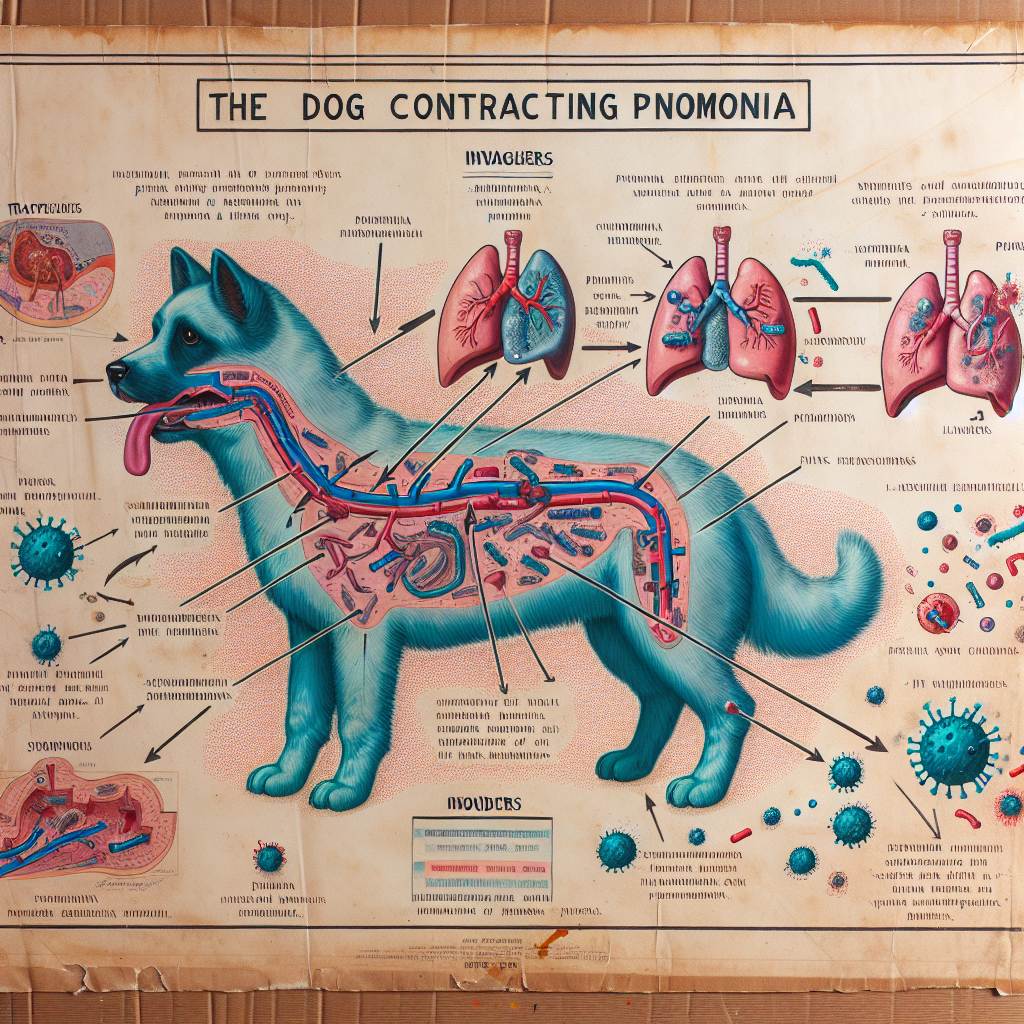===
When our beloved dogs fall ill, it can be a heart-wrenching experience for pet owners. Pneumonia in dogs is a particularly distressing condition that can spiral from a minor ailment into a serious health threat. Understanding how dogs contract pneumonia is essential for proactive pet care, ensuring that our furry companions receive timely help when they need it most. This article explores the underlying causes of pneumonia in dogs and highlights the critical symptoms to watch for, guiding owners on how to navigate this health concern effectively.
Unraveling the Causes of Pneumonia in Dogs
Pneumonia in dogs can arise from various sources, including infectious agents, environmental factors, and underlying health conditions. Bacterial infections, such as Bordetella bronchiseptica, are some of the most common culprits. These pathogens can infiltrate the respiratory system, taking advantage of a weakened immune response, often resulting from stress, poor nutrition, or pre-existing illness. Viral infections, particularly canine influenza and parainfluenza, can also pave the way for pneumonia, as they compromise the respiratory tract’s defenses and create an environment ripe for secondary bacterial infections.
Another significant factor contributing to pneumonia is aspiration, which occurs when food, liquid, or foreign objects are inhaled into the lungs. This can happen during feeding, especially in dogs prone to gulping their food or those with anatomical abnormalities that hinder normal swallowing. Aspiration pneumonia often requires immediate veterinary attention, as it can lead to severe lung infection or inflammation. Additionally, environmental irritants such as smoke, pollution, or allergens can exacerbate respiratory health, making certain dogs particularly vulnerable to pneumonia.
Certain breeds are also predisposed to respiratory issues, making them more susceptible to pneumonia. For instance, brachycephalic breeds, like Bulldogs and Pugs, have unique anatomical traits that can obstruct airflow, leading to chronic respiratory problems. Furthermore, age and overall health play pivotal roles; older dogs or those with chronic conditions are at higher risk. By recognizing these factors, pet owners can adopt preventive measures, such as ensuring proper nutrition, avoiding irritants, and providing timely vaccinations, to reduce the risk of pneumonia in their canine companions.
Recognizing Symptoms and Seeking Timely Treatment
The signs of pneumonia in dogs can range from subtle to severe, making vigilance essential for pet owners. Common symptoms include persistent coughing, difficulty breathing, and nasal discharge. Affected dogs may exhibit lethargy, fever, and a diminished appetite, which can further signal an urgent need for veterinary care. Extended exposure to these symptoms without intervention can lead to more severe health complications, making early recognition crucial to a favorable outcome.
To identify pneumonia, it’s vital to monitor your dog’s behavior closely. Are they experiencing rapid or labored breathing? Is there a change in their typical energy levels? Coughing that seems out of the ordinary should not be dismissed. If your dog shows signs of distress, such as open-mouth breathing or a bluish tint to the gums, these are red flags that warrant immediate veterinary consultation. Diagnostic tools, such as X-rays and blood tests, can help confirm the presence of pneumonia and determine its underlying cause, providing a pathway for effective treatment.
Treatment options for pneumonia may include antibiotics, anti-inflammatory medications, and supportive therapies like oxygen supplementation. In some cases, hospitalization may be necessary for intensive care, especially for dogs with severe respiratory distress. Pet owners should remain proactive in their approach by consulting veterinarians at the first sign of symptoms, adhering to prescribed treatment plans, and ensuring regular follow-ups to monitor recovery progress. Understanding the urgency associated with pneumonia can transform a stressful situation into a manageable health challenge, preserving the bond with our cherished companions.
===
Pneumonia in dogs is a serious health issue that demands attention and understanding from pet owners. By recognizing the causes and identifying symptoms early, you can significantly improve your dog’s chances of recovery. If you suspect your dog may be suffering from pneumonia, don’t hesitate to consult with a veterinarian. Together, you can ensure that your furry friend receives the care they need to bounce back to their playful selves. Remember, your vigilance and informed approach can make all the difference in safeguarding your dog’s health and well-being. For more insights and tips on canine health, stay engaged with resources dedicated to empowering pet owners like you.
Measuring Your Dog’s Height: A Comprehensive GuideUnderstanding How Dogs Become Infested with FleasUnderstanding the Lifespan of Pug Dogs: What to ExpectRelevant LinkRelevant LinkRelevant Link
